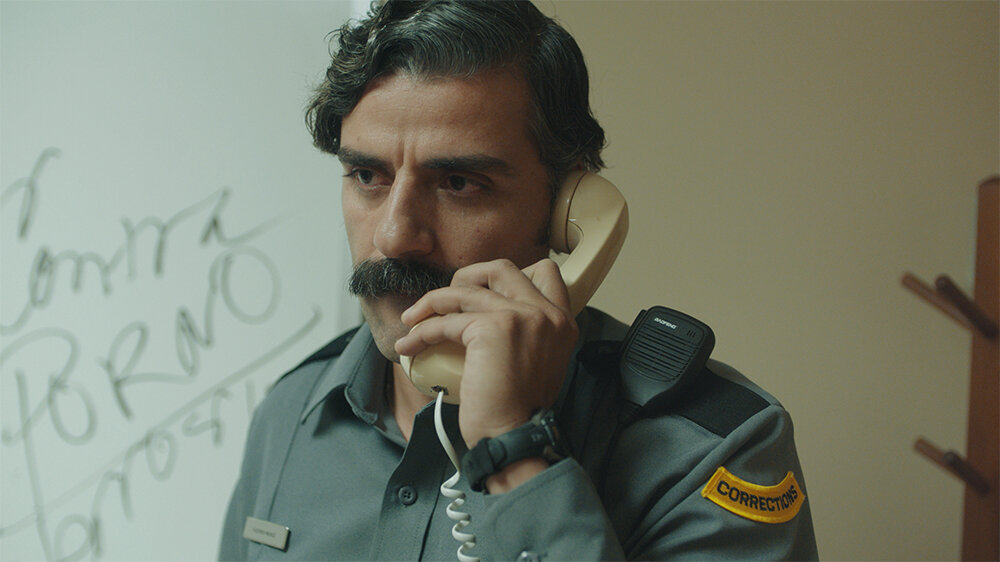The Letter Room Film Review
THE LETTER ROOM: FILM REVIEW

Elvira Lind’s short comedy-drama The Letter Room is charming — but perhaps its most redeeming quality is not entirely attributed to its slowly winding and somewhat empathetic plot, but rather Oscar Isaac’s mustache-attached performance. From Ex Machina to Inside Llewyn Davis to Star Wars, Isaac is always such a pleasure to watch — time and time again the Guatemalan actor effortlessly transforms into roles it seems he was born to play.
In The Letter Room, Isaac plays a prison corrections officer named Richard who has just been promoted to Director of Communications, which in real-time, is just a fancy title for the person who has to screen all the letters that come into the prison for potential threats, dangerous content, or smuggled-in substances. No real communication is involved, at least on Richard’s end, and the task he has been assigned is menial at best. From the grey-toned prison walls to getting a glimpse into Richard’s T.V. dinners, a sinking feeling of loneliness is projected throughout the short film.

The only thing that keeps Richard going — and in many ways, makes him feel both more and less alone — is reading the letters that he must scan through. In particular, Richard becomes enthralled by a series of letters written by a woman named Rosita (Alia Shawkat) and addressed to Cris (Brian Petsos), a rather intimidating and otherwise nonverbal inmate on death row. In these letters, Rosita intimately describes their life together before his incarceration, as well as assures him about his inevitable fate. However, in checking the mail room’s outbox, it appears that Cris stopped writing Rosita back a long time ago — nevertheless, she persists and the letters continue to fall into Cris’ (and Richard’s) hands.
As Richard reads archives of Rosita’s letters, he becomes consumed them. The audience can’t help but feel uncomfortable for his invasion of privacy, and my assumption is that we are meant to feel this way. Richard desperately wants to help Cris and Rosita, but it’s unclear if his motives are fueled by his own loneliness or his generally friendly demeaner. Although we’d like to believe it’s the latter, it is more likely than not a way for Richard to reconcile with his own emptiness. In one of the film’s pivotal scenes, Richard is asked, “If you’re such a hero, then why do you work at an institution that kills people?” To that, our protagonist has no response.
Beyond the short film’s plot, its premise aims to emphasize how dehumanizing the whole letter room process is, as it entirely invades the privacy of those who are incarcerated. In particular, one inmate begs Richard to look for letters in the system from his daughter, as he believes the person who used to work in the letter room was withholding them from him. Although Richard is one of the more well-meaning corrections officers, others who have sat or will sit in his position have the power to discard or possess these letters, which are often the only form of communication with loved ones that the inmates have. If there’s one thing the prison can never rid itself of, it’s loneliness — across the institution’s hierarchies, those they set out to incarcerate, and even those outside the prison walls.
In a span of 32-minutes, Lind’s The Letter Room touches on a broad range of issues — from privacy, to dehumanization, to what it means to feel loved. Sprinkled into these broader themes is an unavoidable humor — one heightened by Isaac’s non-threatening and naive demeanor. Ultimately, The Letter Room succeeds in closely examining a very particular part of our incarceration system, in order to broadly expose the fallacies of a terrible and unjust system as a whole.
Comments
Post a Comment